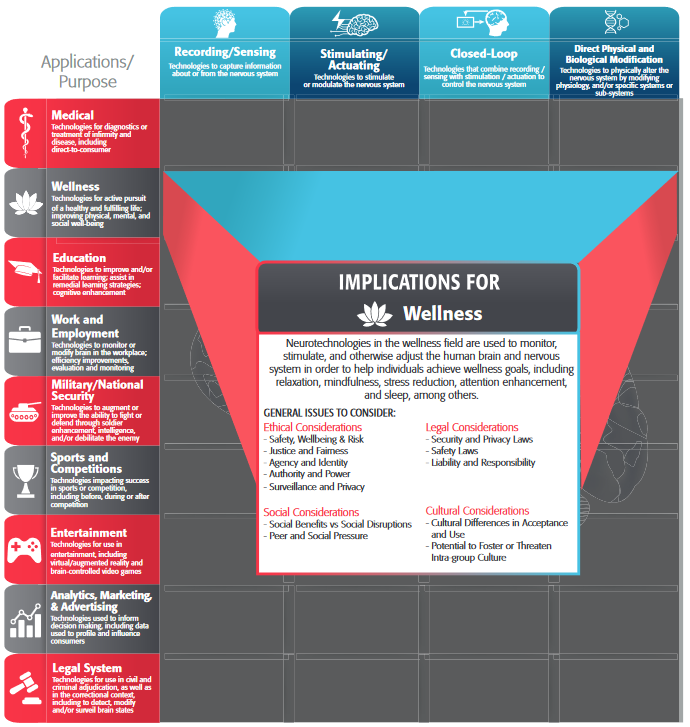The IEEE Brain Initiative is partnering with the IEEE SENSORS 2019 to host a Brain Data Bank (BDB) challenge in Montreal Canada. This is our second time collaborating with the IEEE Sensors Conference, after our successful event at IEEE SENSORS 2017 in Glasgow, UK. Winners from the 2017 BDB Competition and Challenges have published their extended papers at the EMBS Conference 2018, the Sensors Journal 2019, and the SMC Magazine 2019.
You are cordially invited to register for the Challenge and creatively demonstrate value proposition based on your selected open source multi-modal brain data.
Register Now for the Montreal Challenge
On this page
Pre-Event Webinar
Pre-Event Webinar for IEEE Brain Data Bank (BDB) Challenge in Montreal
Want to participate but have questions? A Pre-Event Webinar was held on October 10, 2019. Co-Chairs Nan Chu and Ferdinand Ephrem provided a brief overview of the BDB Challenge, example presentations, and answer your questions.
Missed the webinar? You can view the recorded webinar or the slides below.
Purpose
The 2019 IEEE BDB Challenge in Montreal will help advance this exciting field of multi-disciplinary research and development.
- Investigate non-invasive sensor activated brain signal measurements in conjunction with other physiological inputs
- Explore Brain Signal Multi-modal System Methodology
- Experiment Big Data Analytics, Artificial Intelligence, Deep Learning for user-centric brain signal and image data bank
- Facilitate Brain Data Formatting Standardization
This Challenge seeks to address questions associated with EEG signal image data processing and analytics such as:
- How do brain signals interact with various other physiological signals? i.e., what could be the multi-modal signal interaction among EEG, EKG, EMG, EOG, PPG, etc.?
- What are the feature selection schemes for ease of storage, processing, and retrieval of brain datasets across the Internet? i.e., what is the best data pooling strategy for collective physiological signals impacting EEG?
- How can data compression and analytics reduce the complexity of the brain dataset usability?
- How do brain signals work with virtual reality, augmented reality in various applications, e.g., games, movies, autonomous vehicles, and other emerging digital intelligence in the consumer space?
Registration
We invite you to sign-up with your Team Name, Team Captain’s name, affiliation, email address, and project title/abstract. Start planning and progressing!
- Individual or Team (each up to 5 people per team), no age limitation
- Maximum number of participants: 50 individuals/12 teams
- IEEE members will be given priority.
Registration form for the IEEE BDB Challenge can be found here.
Deadline for submitting the IEEE BDB Challenge registration form is October 21, 2019.
IEEE SENSORS 2019 participants can attend the BDB Challenge free. Other participants require minimally one-day conference registration at IEEE SENSORS 2019. Registration for IEEE SENSORS 2019 can be found here.
A webex will be announced about 1 month before the competition to describe experiences from the previous 6 IEEE Brain Data Bank competitions with Q&A session to ease your preparation and participation.
Please let us know your intention to participate as soon as possible. If you have any questions, please contact bdb-montreal@ieee.org
Location
Palais des Congrès de Montréal
1001 Jean Paul Riopelle Pl,
Montréal, Quebec H2Z 1H5, Canada
Date and Time
The final presentation and judging will take place during IEEE SENSORS 2019, on Monday, October 28, 2019.
Organizers
- Nan Chu, CWLab International, IEEE Consumer Electronics Society Representative in Brain Initiative and Sensors Council.
- Ferdinand Ephrem, Saintrino Technologies, Inc.
Competition Datasets
Teams/individuals are expected to creatively demonstrate their value proposition based on open source brain data. Multimodal brain imaging datasets are encouraged for experiencing impact of various physiological signals driven by brain.
Past competitions have used UCSF and UIUC brain EEG and fMRI datasets (accessed from the IEEE Dataport Competition page). Some have used their own EEG measurements. Although brain reactions are often assessed with visual or audio stimulus, motor reflexes, even ambient or social disturbances, limited multi-modal brain data interpretations have been demonstrated. We would like to see broadened brain image data analytics linking to the neural network effect in this competition.
Published data with no privacy violation can be accepted for the BDB Challenge (all open sources or published, no privacy violation.) The Judge Panel reserves the right to reject datasets from questionable sources.
We are encouraging participants to use brain imaging data for the competition.
Judging
Judging criteria will be based on criteria as follows:
- Technical Approach – 40 points
- Novelty – 40 points
- Results – 20 points
The Judging Panel reserves the right for the final, in-disputable ranking decision.
An optional presentation template is now available for participants. The template can be downloaded here: BDB Challenge_Report_Template.pptx
Awards
Cash awards of $1000.00 or more are planned for the winning teams.
Preliminary Program
October 28th, 2019:
9:00 – 11:00 IEEE SENSORS 2019 Conference Opening Plenary and Keynote
11:30 – 13:00 IEEE BDB Challenge Registration and Introduction. Lunch
13:00 – 14:30 IEEE BDB Challenge Keynote and Participant Networking
14:30 – 15:00 Preparation for Teams’ Final Results
15:00 – 17:00 Team Presentation
The Awards will be announced in the 2019 SENSORS Conference plenary session.



